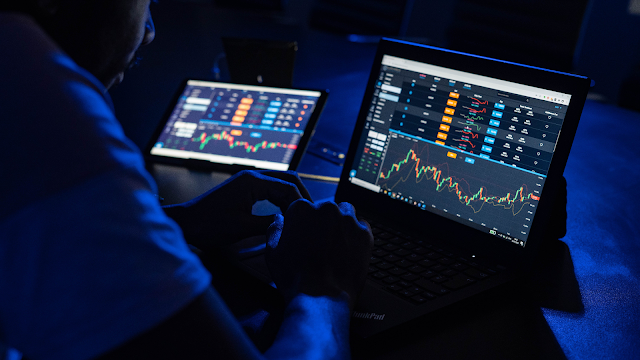Forex Trading Tax Rules in Dubai: Do Traders Pay Tax?
Dubai's tax policies on foreign exchange (forex or FX) trading differ from those of many other nations. Capital gains from forex trading are not subject to taxation in the United Arab Emirates (UAE), thanks to Dubai's tax-free status.
Many forex trading businesses have recently set
up shop in the UAE due to increased interest in the retail foreign exchange
market.
Understanding
Forex Trading
Foreign exchange trading is the buying and
selling of currencies on the foreign exchange market. The goal is to get a
financial advantage from changes in currency values.
The foreign exchange market is a worldwide
marketplace where currencies are traded around the clock, Monday through
Friday. Since there is no central trading facility for foreign exchange (like
there is for stocks), the market is regulated by a loose confederation of banks
and other financial organizations worldwide. In 2022, the FX market's daily
worldwide volume reached $7.5 trillion (USD), making it the most active
financial market in the world.
Similar to a stock's ticker symbol, each currency
has its own unique three-letter code. While there are more than 170 currencies
worldwide, the US dollar is involved in the majority of foreign exchange and CFD trading, so it's
beneficial to know its code (USD). The euro (EUR), used in 19 nations of the
European Union, is the world's second-most-traded currency.
The Japanese yen (JPY), British pound (GBP), Australian
dollar (AUD), Canadian dollar (CAD), Swiss franc (CHF), and New Zealand dollar
(NZD) are also significant currencies.
Forex Trading in
Dubai
Dubai plays an integral part in the international
economy. And many of the world's most successful businesspeople reside there.
Due to its national Islamic identity, Dubai adheres to its religious norms and
restrictions. Dubai's FX brokers must follow Sharia law, which includes many
branches of Islam. However, the Middle East is recognized for its conventional
business procedures. Dubai is a business-friendly and simple city with many
opportunities for companies worldwide.
Why Dubai Is a
Good Destination for Traders
Source: Mo Ismail, via Pexels
Dubai's advantageous location, advanced financial
infrastructure, and accommodating regulatory environment have all contributed
to its rise as a significant foreign exchange center. Many foreign exchange
brokers and other financial institutions serve local and foreign traders in
this city. The Dubai International Financial Centre (DIFC) is an international
financial center that has established rules for foreign exchange trading.
Dubai offers a well-regulated foreign exchange
trading environment, with the Dubai Financial Services Authority (DFSA) serving
as the primary regulating authority. The UAE Central Bank, the DFSA, and the
Financial Sector Regulatory Authority (FSRA) are just some of the agencies
responsible for enforcing Dubai's FX trading framework.
These regulatory organizations guarantee that FX
brokers operating in Dubai conform to high norms of behavior and financial
soundness. For your protection — and that of your funds — you should only work
with regulated brokers when looking for a forex broker. OANDA, for example, is
fully licensed to offer its services within the UAE.
Forex Taxation in
Dubai
Forex trading is considered completely legal in
the UAE, with little to no limitations on the practice. The fact that FX
trading revenues are not subject to taxation is a big perk of doing business in
Dubai. Dubai is unique amongst major economies because it does not tax personal
income. Traders get to keep 100% of their earnings, which boosts their return
on investment.
In addition to not being subject to income tax,
forex trading is exempted from capital gains tax and stamp duty in Dubai. Stamp
duty is a tax on the transfer of ownership of specific financial instruments,
whereas capital gains tax applies to profits made from selling assets or
investments. Dubai's lack of these taxes offers FX traders a competitive edge,
as they may conduct transactions and produce profits without the burden of
additional expenditures, resulting in better total returns.
Starting Forex
Trading in Dubai
Source: Brian Ngali, via pixels
Opening an account is the first step in beginning
your trading career in Dubai. So, as mentioned before, choosing a reliable FX
broker who operates within the law is vital. The quality of your trading
experience and your level of success will greatly depend on your choice. When
selecting a broker, you should consider their regulatory compliance, trading
platform, pricing structures, and customer service.
Navigating the Forex Trading Platform
The next step after choosing a broker and opening
an account is learning the ins and outs of the trading platform. Because this
is where you'll conduct your trades, you must comprehend its features and
functions.
The key to making money in FX is developing a
solid strategy. Your approach should use proven risk management techniques to
successfully traverse the market's volatility, including leverage, stop-loss
orders, and capital allocation. It is also helpful to include trend analysis,
technical analysis, and fundamental research to anticipate market moves better
and make educated decisions.
Develop a trading
plan that fits your
comfort level with risk and long-term objectives, then tweak it in light of
actual market conditions. You may arm yourself with the information and methods
necessary to drive productive trading with this strategy and a solid
understanding of the forex market and the regulatory environment in Dubai.
Dubai as a Foreign
Exchange Trading Hub
Dubai’s tax-free status and business-friendly
environment offer a unique opportunity for traders. The city has established
itself as a global FX hub due to its financial infrastructure and clear
regulatory framework. With proper education, research, and risk management,
Dubai provides an exciting venue for foreign exchange investors looking to
capitalize on the world's largest financial market.












No comments